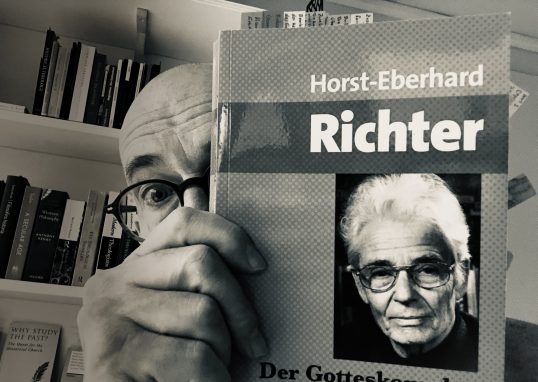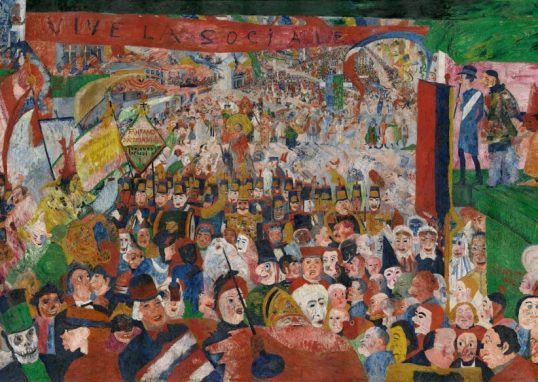 „Ein Schwede ist ein Mensch, der leicht deprimiert ist (zumindest im Winter), verhandlungsbereit, und der sich ohne ausladende Gestik und Mimik ausdrückt.“ Diese Beschreibung eines Schweden kommt aus dem Buch „I rätt riktning“ (In die richtige Richtung). Das Buch entstand aus einer staatlich beauftragten Studie zum Thema Diskriminierung. Die Studie sollte Beziehungen zwischen Einwanderern und Schweden untersuchen um eventuelle Einschläge von Diskriminierung zu entdecken. In einem Kapitel wird diskutiert, was denn wohl so typisch schwedisch ist. Dabei hat man unter anderem darauf geachtet, was ausländische Autoren, Journalisten und Forscher über Schweden und die Schweden geschrieben haben. Und das sind einige Schlüsselwörter, die man herausfand:
„Ein Schwede ist ein Mensch, der leicht deprimiert ist (zumindest im Winter), verhandlungsbereit, und der sich ohne ausladende Gestik und Mimik ausdrückt.“ Diese Beschreibung eines Schweden kommt aus dem Buch „I rätt riktning“ (In die richtige Richtung). Das Buch entstand aus einer staatlich beauftragten Studie zum Thema Diskriminierung. Die Studie sollte Beziehungen zwischen Einwanderern und Schweden untersuchen um eventuelle Einschläge von Diskriminierung zu entdecken. In einem Kapitel wird diskutiert, was denn wohl so typisch schwedisch ist. Dabei hat man unter anderem darauf geachtet, was ausländische Autoren, Journalisten und Forscher über Schweden und die Schweden geschrieben haben. Und das sind einige Schlüsselwörter, die man herausfand:
Ich persönlich finde diese Ergebnisse ausgesprochen interessant und hilfreich – und ganz viel kann ich mittlerweile aus eigener Erfahrung bestätigen. Die Studie hilft uns noch besser zu verstehen, was wir hier eigentlich tun, gerade weil wir ja in einem Projekt sind mit vielen neuen Ideen, die so noch nicht unbedingt „bewiesen“ sind. Wir beten, dass Gott uns in Seiner Weisheit weiter leiten wird.
A Swede is a slightly depressed person (at least in wintertime), willing to negotiate, and who expresses himself without sweeping gestures.” That description comes from the book “I rätt riktning” (The right direction). The book is result of a state study about discrimination. It was supposed to examine the relation between immigrants and Swedes in order to discover possible elements of discrimination. One chapter discusses the question “what is specifically Swdish?”. The study paid particular attention to what foreign authors, journalists, or scientists have said about Swedes and Sweden. Here are some key words they discovered:
“Duktig” (able, capable) is a positive word. A “duktig” person can solve intellectual problems and deal with practical tasks. However, it is not as important if one can deal as well with people. Many think Swedes are “unpsycological”.
“Bråkig” (noisy, troublesome) is a negative word. Swedes don’t like “bråkig” people. The study says, most Swedes endeavor to avoid fight and conflict, trying to find a compromise as soon as possible.
“Lagom” is a typical Swedish word. It means as much as “just right”, not too much and not too less, neither to short nor too long. It covers the idea that people like to choose the happy medium.
“Trygghet” (security, safety) is also a positive word. A person can be “trygg” as he or she is calm, harmonious, and reliable. Social security, e.g. through the state pension authorities, is an important issue. The need for trygghet involves also that a Swede prefers in most cases the well known and proofed to the unknown and new.
Understanding “nature” is of major importance if one wants to understand what is Swedish. Many foreign observers think Swedes are not a very religious people, yet there is a religion, and that is nature. Swedes follow the course of the seasons very intensive and those who live in cities have often a cottage or a small house in the countryside. Here they love to spend their weekends or holidays.
And finally: “Fantasy” is a key word too – in a way that Swedes miss it. Swedes prefer brute facts – discussions without numbers, data, and figures to rely on are to be avoided.
I thought this study is really interesting and helpful, especially as we are in a project that deals a lot with new ideas which aren’t “proofed” yet. And by now we can confirm many descriptions of the study through our own experiences in Sweden. We pray that God will guide us in His wisdom through our course.






